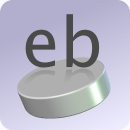Difference between pages "Web-server-stack" and "Package:OpenSSL"
Threesixes (talk | contribs) m (→Benchmarking: MOAR) |
|||
| Line 1: | Line 1: | ||
{{Ebuild | |||
|Summary=Full-strength general purpose cryptography library (including SSL and TLS.) | |||
|CatPkg=dev-libs/openssl | |||
|Homepage=http://www.openssl.org | |||
}} | |||
{{PageNeedsUpdates}} | |||
OpenSSL is a cryptography package used with {{Package|net-misc/openssh}}, web servers, and more. ftps, https, smtps, imaps, etc use SSL/TLS. SSL/TLS is used to prevent man in the middle attacks on plain text streams of data. As this is a security package it is frequently cycled from testing, & bug repairs. | |||
{{note|ssl is old, tls is new. If you have the option to run tls, run tls rather than ssl}} | |||
== | === Installation === | ||
{{console|body=###i## emerge dev-libs/openssl}} | |||
=== | === Usage === | ||
ssl uses several certificates with differing coverage, and use cases. Certificates are obtained by 3rd party sites. go-daddy, namecheap, and verisign are popular ssl certificate providers, though several others exist. | |||
The general overview is buy certificate, send private files, send extra information if required, get files back, insert files into openssl configs, change program configs ports to S version of the protocol, (as in for web port 80, now listens to port 443, and i address the server as https instead of http now.) reorder the cert next year. | |||
=== | ==== Self Signed Certificates ==== | ||
Free: | |||
Self signed certificates are free, self made, quick, easy to setup, and insecure. They are great for lab experiments, and testing out new technologies that you're not familiar with. | |||
==== Free Certificates ==== | |||
Free: (with restrictions) | |||
You can get free certificates from places like StartSSL.com. The free certificates from them are not recommended if you are a company or doing E-Commerce as they only validate that you own the domain, not anything beyond that. However, for personal sites, you can't beat the cost. | |||
== | ==== Single Domain Certificates ==== | ||
Generally $10/yr: | |||
Single domain certificates are probably the cheapest ssl certificate you will find on the web. This certificate does not cover subdomains. | |||
=== | ==== Unified Communications Certificate ==== | ||
Generally $300/yr | |||
This certificate is meant for small businesses. This type of certificate will generally cover 20-30 domains, sites, or subdomains. | |||
==== Wildcard Certificates ==== | |||
Generally $300/yr | |||
Wildcard certificates are expensive, however they cover every subdomain name you add. | |||
==== Other Misc Certs ==== | |||
* | *domain validated SSL Certificates | ||
*organization validated SSL Certificates | |||
*Extended Validation SSL Certificates | |||
=== Using SSL With Nginx or Tengine === | |||
See this page: [[HOWTO:WebServer_SSL]] | |||
=== | === External Resources === | ||
https://wiki.archlinux.org/index.php/OpenSSL | |||
{{EbuildFooter}} | |||
https:// | |||
Latest revision as of 05:58, July 9, 2015

OpenSSL
We welcome improvements to this page. To edit this page, Create a Funtoo account. Then log in and then click here to edit this page. See our editing guidelines to becoming a wiki-editing pro.
OpenSSL is a cryptography package used with net-misc/openssh, web servers, and more. ftps, https, smtps, imaps, etc use SSL/TLS. SSL/TLS is used to prevent man in the middle attacks on plain text streams of data. As this is a security package it is frequently cycled from testing, & bug repairs.
ssl is old, tls is new. If you have the option to run tls, run tls rather than ssl
Installation
root # emerge dev-libs/openssl
Usage
ssl uses several certificates with differing coverage, and use cases. Certificates are obtained by 3rd party sites. go-daddy, namecheap, and verisign are popular ssl certificate providers, though several others exist.
The general overview is buy certificate, send private files, send extra information if required, get files back, insert files into openssl configs, change program configs ports to S version of the protocol, (as in for web port 80, now listens to port 443, and i address the server as https instead of http now.) reorder the cert next year.
Self Signed Certificates
Free: Self signed certificates are free, self made, quick, easy to setup, and insecure. They are great for lab experiments, and testing out new technologies that you're not familiar with.
Free Certificates
Free: (with restrictions) You can get free certificates from places like StartSSL.com. The free certificates from them are not recommended if you are a company or doing E-Commerce as they only validate that you own the domain, not anything beyond that. However, for personal sites, you can't beat the cost.
Single Domain Certificates
Generally $10/yr: Single domain certificates are probably the cheapest ssl certificate you will find on the web. This certificate does not cover subdomains.
Unified Communications Certificate
Generally $300/yr This certificate is meant for small businesses. This type of certificate will generally cover 20-30 domains, sites, or subdomains.
Wildcard Certificates
Generally $300/yr Wildcard certificates are expensive, however they cover every subdomain name you add.
Other Misc Certs
- domain validated SSL Certificates
- organization validated SSL Certificates
- Extended Validation SSL Certificates
Using SSL With Nginx or Tengine
See this page: HOWTO:WebServer_SSL
External Resources
https://wiki.archlinux.org/index.php/OpenSSL